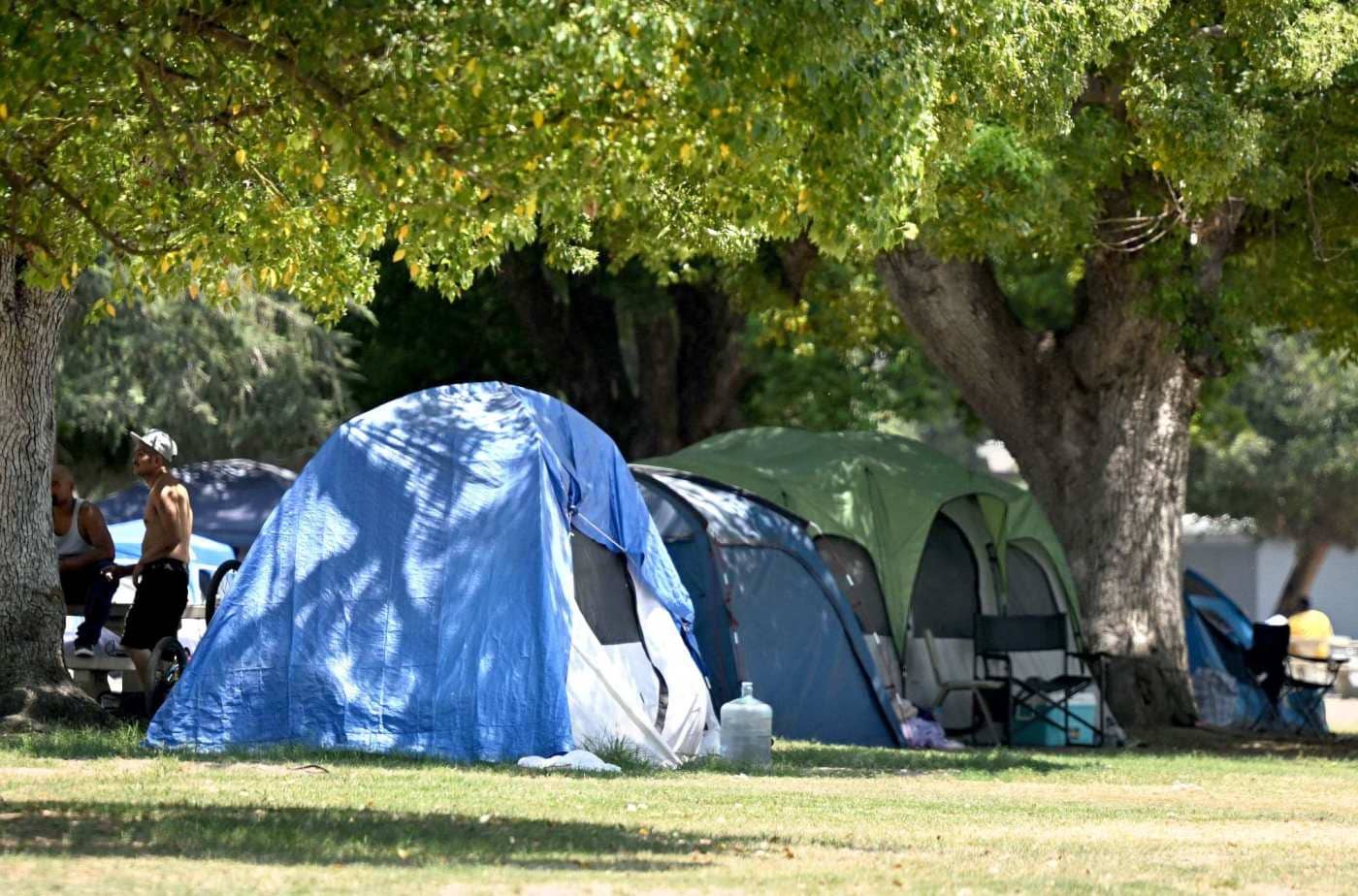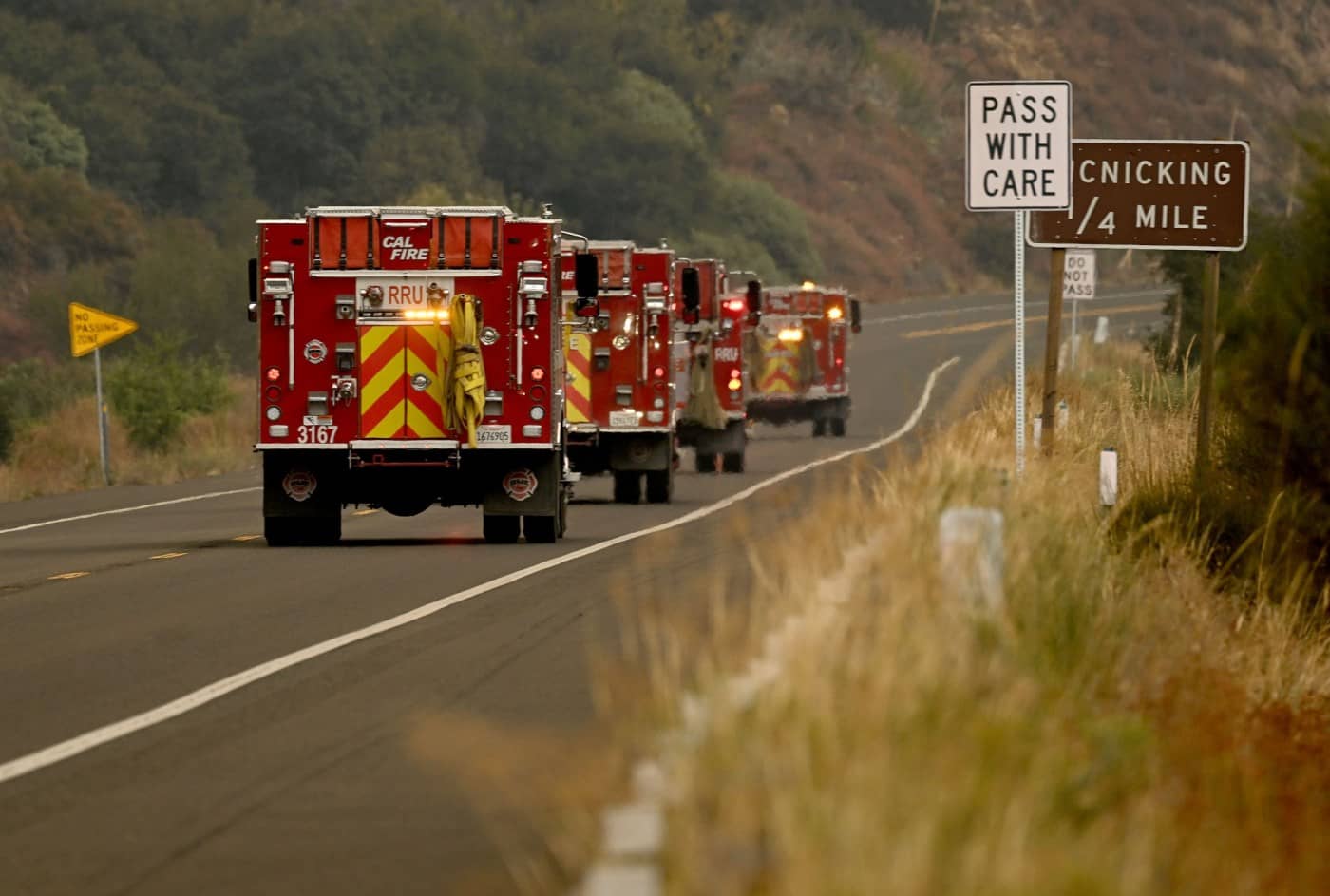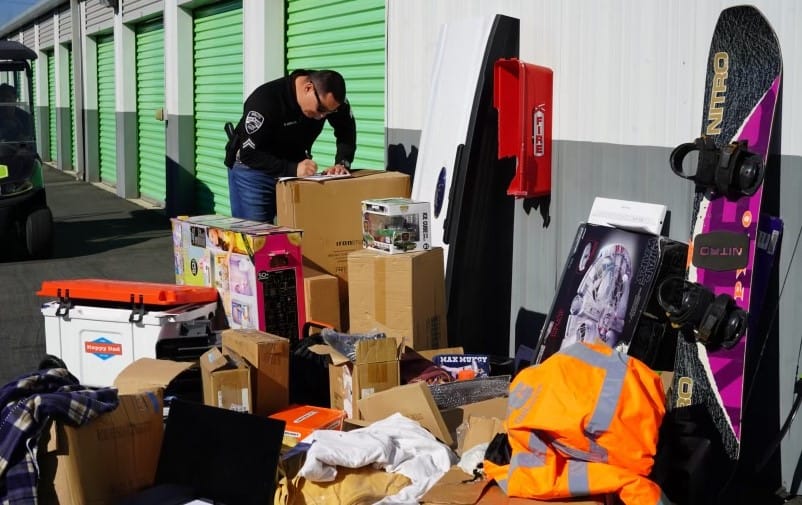In a “first-of-its-kind” settlement announced Monday, Sept. 30, the city of San Bernardino has agreed to a new policy that will prevent the destruction of homeless people’s property and ensure reasonable accommodations for the unhoused with disabilities.
Additionally, unless there is an immediate public health or safety concern, the city has agreed not to displace the homeless during sweeps of encampments and cleanups unless they offer emergency interim housing options such as hotels, according to the ACLU Foundation of Southern California.
“This agreement ensures other people will have their rights protected going forward,” said Lenka John, one of six plaintiffs who filed a lawsuit against the city in August 2023, in a statement Monday. “San Bernardino should meet the needs of our unhoused neighbors by offering housing and services that are voluntary, humane and dignified.”
The lawsuit alleged the city disregarded their constitutional rights, destroyed their personal property — including medicine, vital documents, medical equipment and tents — and left them in dangerous situations when they were ordered to vacate city parks where they were living.
Plaintiff Noel Harner, who uses a wheelchair, alleged in the lawsuit he was vacated from Perris Hill Park and given a one-week voucher to stay at a motel, but received no help moving himself or his property. Once the voucher expired, he claimed he had nowhere to go.
City spokesperson Jeff Kraus said Monday that, under the settlement agreement, homeless people with disabilities will receive “elevated levels of accommodation.”
“This settlement reaffirms that our laws protect these vulnerable populations and emphasizes that cities must plan for and accommodate the physical, medical, and mental health needs of all residents,” said Brooke Weitzman, executive director of the Elderly Law and Disability Rights Center in Santa, which along with the ACLU and the Los Angeles law firm O’Melveny & Myers represented the plaintiffs in the lawsuit.
In an accompanying lawsuit filed in August 2023 against the city of Riverside and Police Chief Larry Gonzalez, Weitzman, on behalf of more than 100 plaintiffs in a class-action case, accused the city of summarily seizing and destroying homeless people’s property. That lawsuit is still pending in federal court.
Kraus called the settlement in the San Bernardino case, reached Sept. 25, a “victory for the residents of San Bernardino.” He said the city can now move forward with cleaning up its parks and relocating homeless residents willing to accept the services and housing options the city provides them.
As part of the agreement dismissing the lawsuit, San Bernardino also will reinvest $600,000 into new city houselessness programs. The court also will retain jurisdiction for three years to ensure the agreement is enforced, including implementation of the new policy.
A preliminary injunction granted by U.S. District Court Judge Terry J. Hatter Jr. in January barred the city from removing or displacing unhoused residents and their belongings pending further judicial review of the case.
And that created a boom in the number of homeless people camping in city parks, the city said.
“The number of tents and people camping in our parks has ballooned since January,” Kraus said. “They knew there were no repercussions in camping there. They knew we were prohibited from doing any encampment cleanups.”
He said the city will conduct a news conference later this week.
“We’re very pleased that this is behind us,” Kraus said. “Our park and open spaces have been off limits to our residents and their families. The dismissal of the lawsuit will allow the residents and families to get their parks back.”
He said city staff and the homeless outreach team it contracts with at the Van Nuys-based nonprofit Hope the Mission will be making contact with homeless residents in the community, informing them of housing options and other services available to them. The city and its homeless outreach team also can temporarily store homeless people’s personal belongings should that service be needed.
“We will offer interim housing options. If they refuse services, that does not mean they will be allowed to stay,” Kraus said. He said many, if not most homeless people, decline the housing and services because it comes with too many conditions and rules.
“The bottom line is, we have to have facilities, be it shelters or vouchers, and if they say no that doesn’t mean they can stay at a park,” Kraus said.
Related links
San Bernardino violated rights of homeless residents living in parks, lawsuit alleges
Federal judge temporarily bans San Bernardino from displacing homeless residents
Homeless rights advocates take court fights to Inland Empire
He said it sometimes takes 40 to 50 interactions between the homeless outreach team and a homeless individual before he or she becomes trusting enough and willing to accept interim housing and other services. “Anecdotally, that has been what I have been told by a lot of (homeless) providers,” Kraus said.
In a statement Monday, ACLU SoCal staff attorney Kath Rogers said, “All our neighbors deserve a safe, permanent, and affordable home that meets their needs. The agreement recognizes that displacement is harmful, you cannot destroy people’s property, and that people are to be treated with dignity wherever they live.”
Kraus could not immediately say whether the supply of available interim housing and services for the city’s homeless population, the largest in the county, will meet the demand.
“As we begin to take back our parks,” he said, “we’ll see how many accept the services and how many move on. It remains to be seen.”



